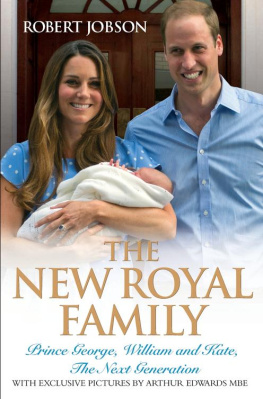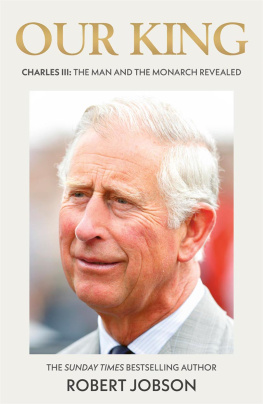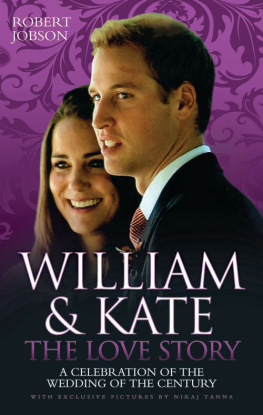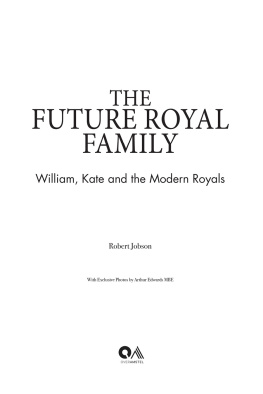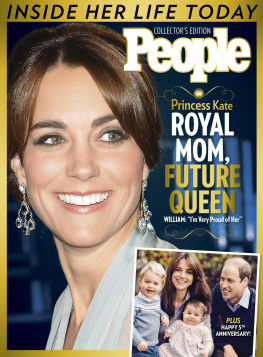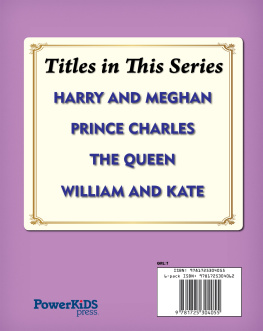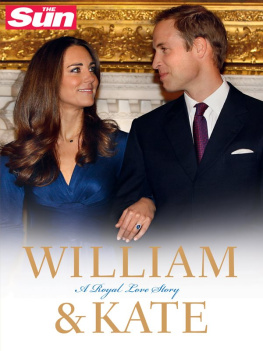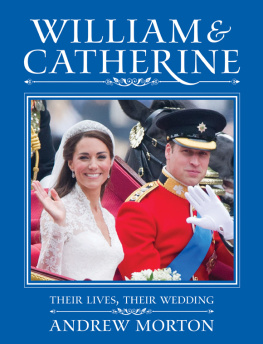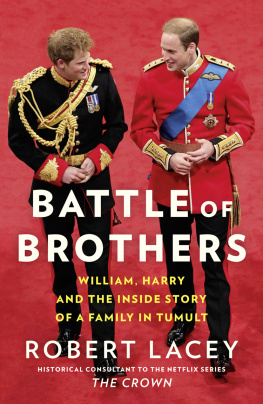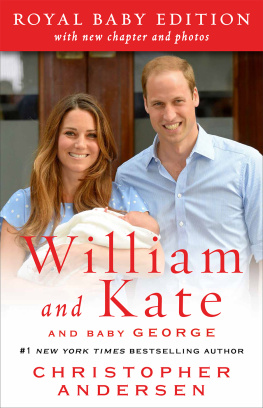T he birth of any baby is always special, a moment of undiluted joy and celebration. But the birth of a future sovereign is extra special an historic point in time for Britain and the rest of the Commonwealth to savour. This birth marks a new beginning for a New Royal Family. Born into a multi-media age, Prince George will have to adapt to a fast-changing world perhaps like no other future monarch and one day reign over a new, more streamlined, modern monarchy, not to mention an increasingly diverse population. This book celebrates this highly significant moment in our history and attempts to shed light on the story behind the headlines.
I am delighted that my good friend and mentor Arthur Edwards MBE agreed to illustrate this book. His photographs are as brilliant as his career as the leading royal photographer of his generation. His decision to generously donate his fee to the charity Kids Company will help others, while his photographs that adorn this publication will, I am sure, give the reader great pleasure. He took all these photographs as an accredited photographer for the bestselling Sun newspaper. He has always enjoyed a good working relationship with members of the Royal Family, which shows in the iconic pictures he takes. We first worked together in 1991 when I started my career reporting royalty; I have always valued his wise counsel and honest friendship.
This book could not have been written and turned around at such rapid speed without the sheer hard work of my editor Chris Mitchell and the rest of the team at John Blake Publishing. Thanks, too, to my publisher John Blake for believing in the project and giving the go ahead for our fourth book together. Thanks also to Rosie Virgo for her unstinting support and to Toby Buchan, who edited my Diana: Closely Guarded Secret.
I am greatly indebted to many others, some I happily acknowledge here, others, for obvious reasons, remain unnamed. With that in mind, I would like to thank the press teams at Kensington Palace, Clarence House and Buckingham Palace, especially Dr Ed Perkins, Nick Loughran, Patrick Harrison, Ailsa Anderson LVO and James Roscoe. I would like to thank The Happy Elephants too they know who they are.
W illiam and Kates baby, Prince George Alexander Louis, will be the first truly modern British monarch descended from coalminers as well as kings. One day, this child will lead a very different monarchy; one that is more streamlined, inclusive and more cost effective. In this modern global media world, this child will be watched like no other; something Georges parents will be acutely mindful of. If this child was simply the heir to the throne, that would be enough to retain the interest of the watching world, but that is not all George is. For the first time in history, this first baby would have become sovereign irrespective of its sex. It will also be the first for 300 years since the reigns of the sisters Queen Anne and Queen Mary II to have a commoner, not aristocrat or royal, as its mother.
Despite this, being Prince William and Kates first child, he will, of course, be born into a world of vast wealth, ancient ancestry, palaces and royal titles. Privileged and princely, their baby will be the most famous in the world. The parents, and many others, will do their best to stifle the inevitable media frenzy, insisting the baby is just like any other. But the truth is this child will be special. Very special.
The scrapping of the ancient primogeniture laws signed off by the Queen in Perth ahead of the Commonwealth Heads of Government Meeting (CHOGM) in 2011, before being passed in both Chambers of Parliament in the UK signalled, too, a new dawn for the Royal Family. It is an important moment because it shows the House of Windsor is prepared to progress with the times. It certainly has its fair share of ancient traditions but it is an institution that embraces the times it serves.
The constitutional wheels of change were set in motion with the Succession to the Crown Bill, introduced into Parliament by the MP Keith Vaz. Importantly, the Bill had the Queens support. When it passed, which it did when it received the Royal Assent on 25 April 2013, it meant that if the Duke and Duchess of Cambridges first-born had been a girl, then she would automatically be Queen Regnant after the reign of King William, her father, irrespective of whether her parents produce a younger brother later.
Through this Bill, the ancient laws of primogeniture 1,000 years of history with royal male precedence were scrapped before William and Kates baby was born, perhaps for the avoidance of any doubt. Some, including Prince Charles, did raise concerns that the Bill in its entirety had not been given due consideration. Had all the is been dotted and ts been crossed was his main concern; it was nothing to do with him supporting an outdated law. The change in the royal succession rules brought this modern monarchy into the 21st century, ending sex discrimination in an instant. There can be no doubt that, to be relevant, this unelected institution simply has to be popular, and to do this it has to be seen to adapt to the times it serves.
William and Kate are absolutely determined to raise their baby their way. Neither will allow the child to be weighed down by royal tradition or expectation, despite the pressure of birthright. Kate, who has refused to hire an army of servants up until now, is said to be reluctant to allow an army of old-school nannies to take charge when they take up residence at the palatial Apartment 1A at Kensington Palace, after an expensive renovation. However, it is expected that the pressures of her workload and public duties will mean she will have to have at least one nanny to support her. But, after all, that is no different to many middle-class working mothers who often do employ nannies. Kates mother Carole, who she often turns to for advice, will, of course, also be there for support in the early days, and beyond. There has even been talk from Kates indiscreet uncle that she will effectively move in for the first few months.
William and Kate will not want their baby who, as a boy, will inherit a 700 million Duchy of Cornwall trust fund wrapped in cotton wool and mollycoddled. Instead, they hope the child born to reign will be free to express individuality. For William the last royal baby born to reign before his own child it was a markedly different affair to his own fathers childhood. Despite his extraordinary birthright, his mother had insisted her baby would be raised her way. Kate is just as determined as Diana was, one source close to her told me. Princess Diana famously battled like a tigress to avoid the constraints of royal life being thrust upon William and Harry too early, because she feared it would stifle their carefree development as children. Her stance at the time at first opposed by traditionalist Prince Charles helped shape William into the balanced young man he is today.
Diana had a clear idea of how she wanted her sons raised. She axed their first nanny, Barbara Barnes, for protesting too vigorously that the Princes need to be treated differently. The Princess was having none of it. She wanted her boys to be as balanced and normal as possible, almost in spite of their extraordinary birthright. Her second nanny, Olga Powell, deferred to Diana on everything; there could be only one boss in the nursery. That said, Diana was known to allow either the nanny or the bodyguard to discipline her royal children if they stepped out of line as Ken Wharfe, Williams former Scotland Yard personal protection officer, recalled: I remember on a number of occasions both William and Harry getting a smack if they were naughty. Another of their nannies, Jessie, knew exactly how to keep Harry under control. A large woman, she used to pin Harry to the wall with her stomach until he calmed down. They were given a sound grounding from royal staff, and both boys soon learned that, despite their royal rank, there was a pecking order, and they had to do what they were told. I am sure William and Kate will pass this on.

